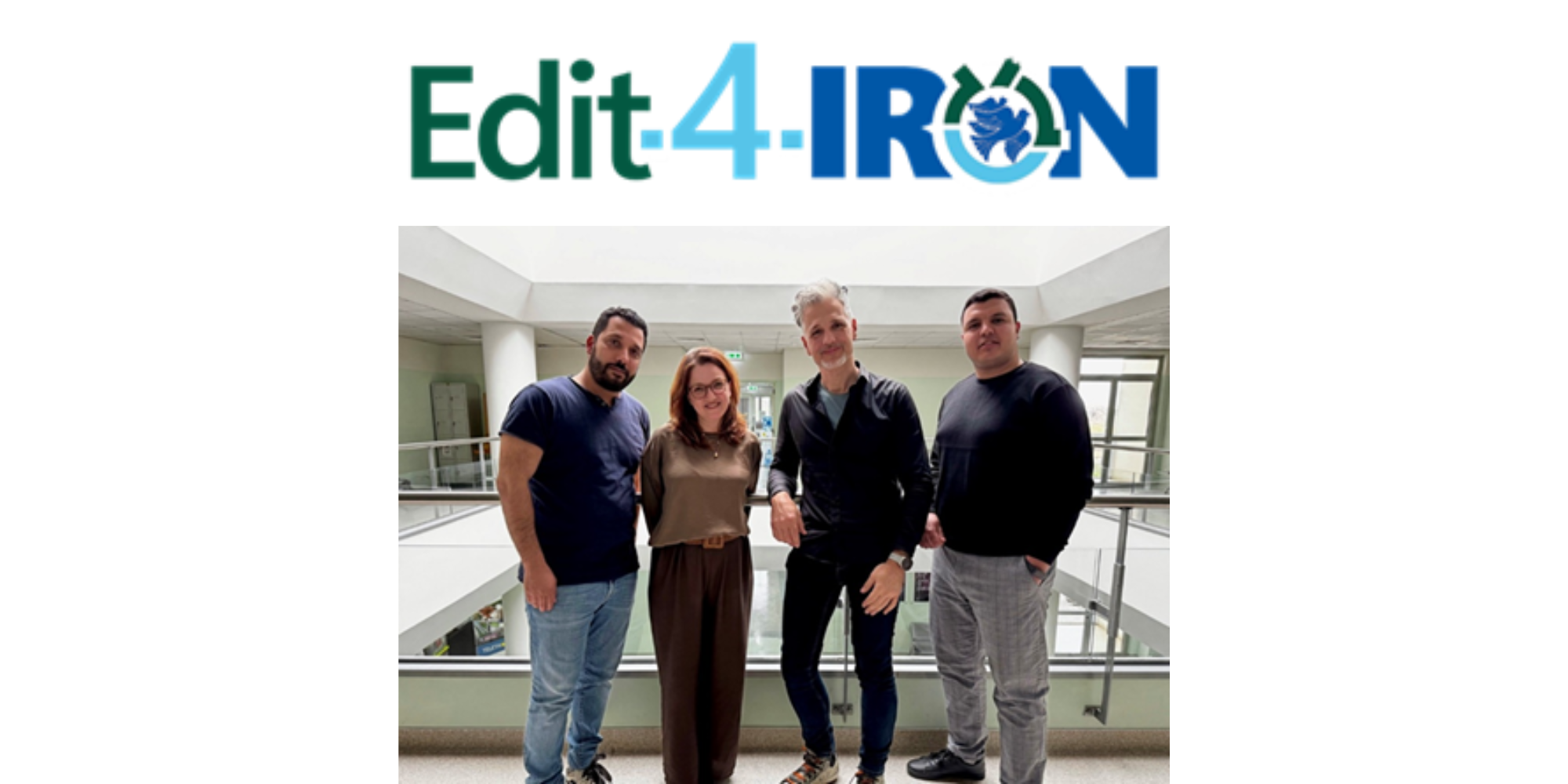The Molecular Genetics Thalassemia Department (MGTD) of the Cyprus Institute of Neurology & Genetics (CING) proudly announces the start of a new project named EDIT-4-IRON: Genome Editing for Iron-Restrictive Therapy of Hereditary and Acquired Haematological Disorders. This 36-month project is funded with €200,000.00 under the “RESTART 2016–2020, Bilateral Collaborations” programme of The Research and Innovation Foundation.
EDIT-4-IRON is a bilateral Cyprus-Israel programme that aims to develop new collaborations and networking between highly qualified Israeli and Cypriot scientists, promising to strengthen Cyprus and Israel as hubs for genetic and haematological research and enhance their national impact and standing in the international medical and research community. On the Cypriot side, the project is led and coordinated by Dr. Carsten W. Lederer, Head of the MGTD and Associate Professor at CING, with experimental leads haematologist Dr. Panayiota L Papasavva and gene editing expert Dr. Petros Patsali. On the Israeli side the project is led by gene editing expert Dr. Ayal Hendel, Professor at Bar-Ilan University (BIU). Both partners have a proven track record of innovation in their fields, with CING as the national reference laboratory and innovator for research and diagnosis of rare anaemias and other blood disorders in Cyprus and the first in Cyprus to publish research on lentiviral gene addition and gene editing, and with BIU as the holder of several patents related to editing technology, and as innovator in safety assessments of genome editing, and national pioneer in advanced therapy medicinal product development for blood disorders. The project will provide training opportunities in cutting-edge gene therapy technologies, along with international networking and professional advancement opportunities for two PhD students—one in Cyprus (Azzam Mohamed Ahmed Abdelfattah) and one in Israel—as well as one MSc student in Israel.
The EDIT-4-IRON project’s scientific objective is to establish innovative genome editing strategies targeting genes implicated in iron metabolism, to address inherited and acquired iron-related haematological disorders (IHDs) characterised by ineffective erythropoiesis and/or iron overload. While current small-molecule-based therapies targeting iron metabolism show promise, they require lifelong administration and pose significant side effects. EDIT-4-IRON aims to revolutionise IHD treatment by utilising clustered regularly-interspaced short palindromic repeats (CRISPR)/Cas and base editor technology to create gene knockouts, inducing an iron restrictive status that could benefit thousands of patients worldwide. Focusing on transfusion-dependant β-thalassaemia, non-transfusion-dependant thalassaemias, hereditary haemochromatosis, and polycythaemia vera, EDIT-4-IRON will comprehensively assess therapeutic efficacy and safety at the ex vivo and in vivo level, employing primary cells, relevant cell lines and murine disease models. As all research projects of the MGT department, EDIT-4-IRON seeks to develop knowledge and methods of benefit to patients in Cyprus, and in this case will also rely on primary samples from patients in Cyprus to achieve this aim.
The EDIT-4-IRON project commenced on May 26th, 2025, with a kick-off meeting between the two partners, in which the collaboration framework for achieving the project’s objectives, milestones, and deliverables within the planned timeframe was discussed and defined.
Source: The Cyprus Institute of Neurology & Genetics | News & Events | Media (https://tinyurl.com/mr2ryphv)
